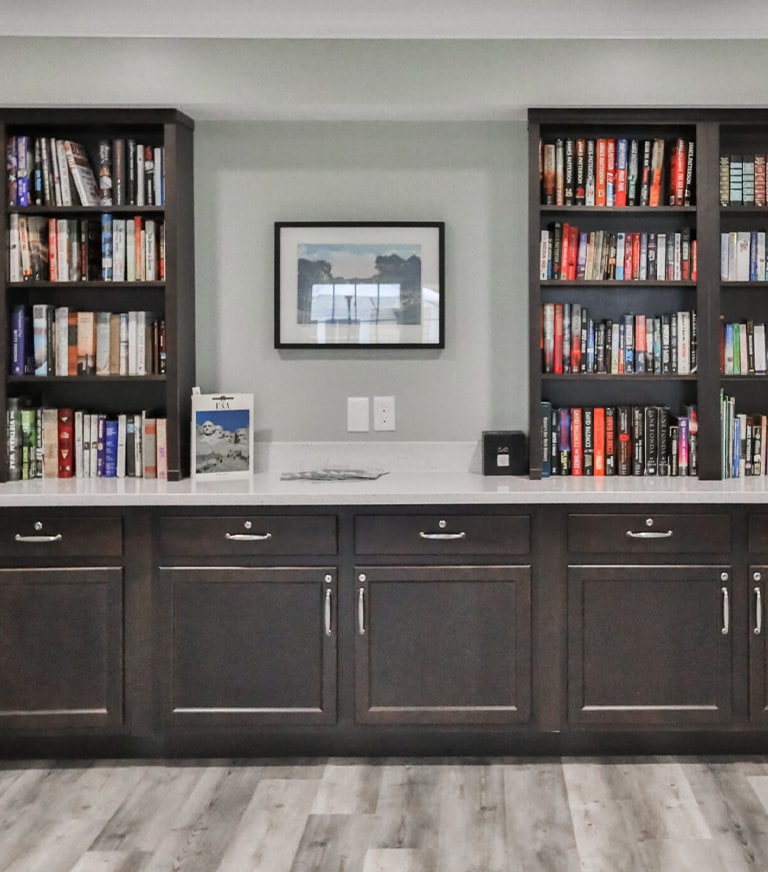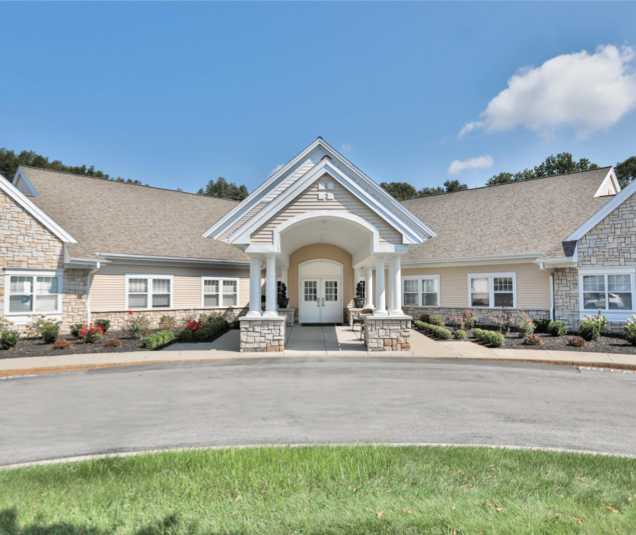When caring for a loved one with dementia, every decision feels significant. It’s natural to wonder if they’re truly safe, secure, and supported in their daily lives. Memory loss brings unique challenges, and ensuring dignity and purpose for seniors requires thoughtful, specialized care. This is where memory care communities shine.
These communities are designed to keep seniors safe by:
- Creating a secure and supportive environment
- Providing safety and structure
- Nurturing emotional well-being and connection
- Reinforcing independence and confidence
Creating a Secure & Supportive Environment
For seniors with Alzheimer’s or other forms of dementia, safety is a crucial concern. Memory care communities are thoughtfully designed to prevent common risks such as wandering, confusion, and falling while maintaining a sense of freedom for residents.
Safe Spaces for Every Moment
Purpose-built spaces are at the core of memory care communities. Features such as secure entrances, enclosed gardens, and circular layouts minimize hazards while providing residents with the freedom to move around safely. Handrails, slip-proof flooring, and well-lit hallways help prevent accidents, ensuring peace of mind for families.
These design elements not only keep seniors physically safe but also create a calm and familiar environment, thereby reducing anxiety and confusion.
Trained Staff for Every Situation
The staff in memory care communities are specially trained to handle the unique challenges of dementia. They utilize evidence-based techniques, such as redirection, validation therapy, and sensory stimulation, to respond compassionately to residents’ needs.
For example, staff are prepared to redirect residents experiencing agitation or restlessness, transforming potentially stressful moments into calming ones. This proactive care builds trust and stability, reassuring both residents and their families.
Nurturing a Purposeful Life
Safety is essential, but memory care communities go beyond meeting physical needs. They aim to enrich residents’ lives with meaning and connection. Purposeful living has been shown to reduce frustration, improve emotional stability, and even enhance cognitive functioning.
Engaging Activities
Residents participate in engaging activities tailored to their abilities and interests. These include music therapy, art classes, gardening, and games that stimulate memory and encourage self-expression.
For instance, a gardening session helps seniors connect with nature while giving them the satisfaction of nurturing life. Art classes enable creative expression, where painting might evoke cherished memories. These moments of achievement bring a sense of joy and pride.
Social Connection
Isolation and loneliness are common struggles for seniors with dementia, but memory care communities foster connection. Residents enjoy group activities such as movie nights, shared meals, and celebrations. Even one-on-one conversations with staff and peers can spark happiness and reduce feelings of isolation.
Strengthening these bonds fosters a sense of community, making residents feel valued and included.

Reinforcing Independence & Confidence
Memory care communities strike a balance between safety and autonomy, enabling seniors to make decisions that enhance their sense of control and dignity.
Choices & Empowerment
Even small choices, like selecting an outfit or deciding on a meal, can make a significant difference. Empowering residents to make these decisions allows them to maintain a sense of ownership over their lives.
Strength-Based Approach
Focusing on what residents can do, rather than dwelling on their limitations, is a pillar of memory care. For example, a former baker might find joy in assisting with kitchen tasks, while a music enthusiast may love group sing-alongs. Honoring individual skills and passions helps rebuild confidence and keeps frustration at bay.
Keeping Seniors Safe Through Early Memory Care
Often, families hesitate to transition their loved ones into memory care due to concern for their well-being, feelings of guilt, and the difficulty of the move. However, starting earlier can provide significant advantages such as:
- Smooth Transition: Early transitions can mean older adults acclimate to their new environment more easily, due to increased cognitive adaptability.
- Slower Dementia Progression: The structured routines and specialized activities of these communities can slow the progression of dementia and prevent dangerous situations such as wandering or medication errors.
- Peace of Mind: For families, this early intervention brings peace of mind, knowing their loved ones are both safe and thriving.
- Enhanced Social Engagement: Moving to memory care earlier allows residents to build relationships with peers and engage in social activities, reducing feelings of isolation and promoting emotional well-being.
- Personalized Care Plans: Early transitions enable caregivers to develop tailored care plans that effectively address the specific needs and preferences of each person, ensuring they receive the best possible support as their condition evolves.
Rediscovering Joy & Security in Memory Care
Memory care communities do more than care for seniors with dementia. They create environments that celebrate individuality, empower independence, and nurture connection. These communities prioritize safety while helping residents find joy and meaning in their daily lives.
If you’re exploring care options for a loved one, consider visiting Peregrine Senior Living at Clifton Park. Witness firsthand how we provide purpose, security, and a high quality of life for residents.
Take the first step toward finding the right memory care solution for your loved one and contact our community today.











World of chocolate & Willy Wonka Day🍫💝 we learned how chocolate is made, had a special chocolate tasting, and enjoyed finishing the afternoon with one of our favorite live saxophone performers🎷 ... See MoreSee Less
0 CommentsComment on Facebook
Valentines Day Advice🎤💕❤️ ... See MoreSee Less
0 CommentsComment on Facebook
Our “Gal”entine Spa Day 🧖♀️ Celebrating friendship and sisterhood💕🩷 ... See MoreSee Less
0 CommentsComment on Facebook
February is American Heart Month, a time to focus on caring for the muscle that keeps us moving and thriving. 🫀
We encourage residents to take heart-healthy steps every day: enjoying balanced meals, staying active, connecting socially, and taking moments to rest and recharge.
Together, we can make heart health a daily celebration of life and well-being.
peregrinecliftonpark.com/ ... See MoreSee Less
0 CommentsComment on Facebook
Want to stay connected with what’s happening across our community?
Follow us on Instagram for updates, moments we love, and stories worth sharing.
Come join the community by following us via the link below ⬇️
www.instagram.com/peregrine_cliftonpark/ ... See MoreSee Less
0 CommentsComment on Facebook
Morning love songs with Laura Collin’s🎶 ... See MoreSee Less
2 CommentsComment on Facebook